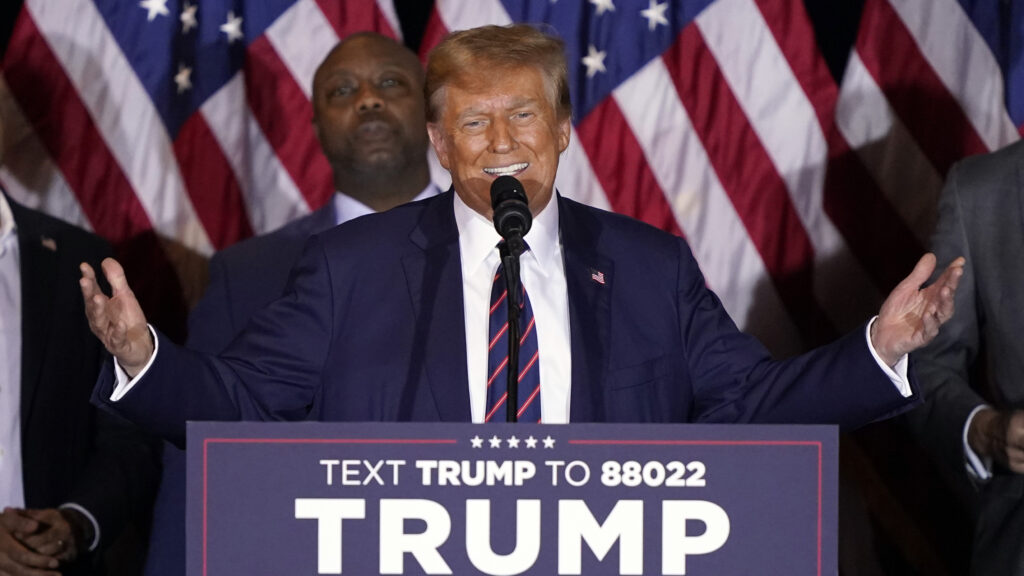US Supreme Court Will Hear Trump’s Immunity Appeal in April, Delaying Election Subversion Trial
WASHINGTON, D.C. — In an unsigned order issued today, the U.S. Supreme Court scheduled oral argument for April 2024 to resolve the question of whether former President Donald Trump is absolutely immune from criminal prosecution for his efforts to overturn the 2020 presidential election. The high court’s move will further delay the criminal trial in Special Counsel Jack Smith’s federal election subversion case against Trump, which was originally set to begin on March 4, 2024.
The Supreme Court’s decision to take up the question of presidential immunity follows Trump’s request to pause a February ruling from the D.C. Circuit affirming that he is not absolutely immune from criminal prosecution for “official acts” he undertook while serving as president. In that ruling, a unanimous three-judge D.C. Circuit panel upheld district court Judge Tanya Chutkan’s December 2023 decision denying Trump’s motion to dismiss his federal election subversion indictment on presidential immunity grounds.
The Supreme Court’s order noted that the D.C. Circuit’s ruling will remain on hold pending its decision on the presidential immunity question, but specifically stated that the order should not be construed as “expressing any view on the merits” of the appeal. As a result of the order, the case cannot resume at the district court level and will not proceed to trial until the Supreme Court issues an opinion following its oral argument, which is scheduled for the week of April 22, 2024.

Legal experts have already expressed concerns about how the Court’s action could decrease the likelihood of a criminal trial occurring prior to the 2024 election. In a post on X, the vice president of the Brennan Center for Justice, Wendy Weiser, wrote: “This is an outrage. In the case of accountability for #January6th, justice delayed is justice denied. Voters deserve a…full trial before it’s too late.”
In a brief submitted to the Court earlier this month, Smith urged the justices to deny Trump’s request to pause the D.C. Circuit’s ruling, given the “unique national importance” of the case. Smith emphasized that the “public interest in a prompt trial is at its zenith where, as here, a former President is charged with conspiring to subvert the electoral process so that he could remain in office.”
At the end of last year, the Supreme Court rejected an earlier request from Smith seeking to bypass the D.C. Circuit and have the Court decide on the presidential immunity question immediately.
Meanwhile, trial is set to begin on March 25 in the New York criminal case against Trump alleging that he disguised payments to adult film star Stormy Daniels prior to the 2016 presidential election. The New York case is the first of the four criminal prosecutions of the former president to head to a trial.
In addition to New York and Washington D.C. cases, two other criminal prosecutions against Trump are ongoing in Florida and Fulton County, Georgia. The Florida case concerns Trump’s mishandling of classified documents while the Fulton County, Georgia case centers on Trump and his allies’ election interference in the 2020 presidential election. Across these four criminal cases, Trump faces a total of 91 felony counts.